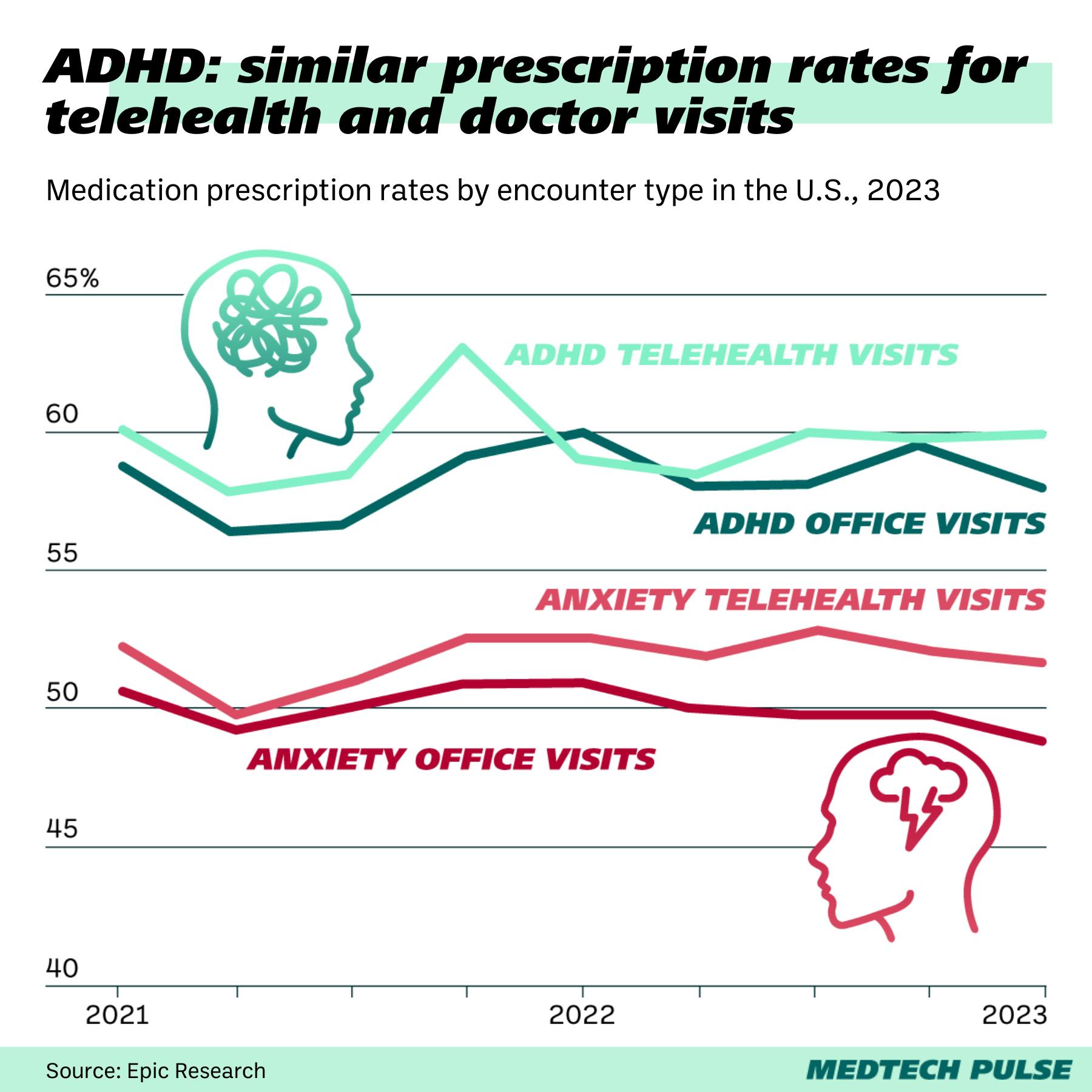Done: Telehealth in the doghouse
Since Theranos’ Elizabeth Holmes was sentenced to prison, medtech hasn’t faced much sensational criminal scrutiny. That changed this month, as telehealth startup Done got into hot water.
Done specializes in easy, online-only ADHD treatment. The company’s founder, Ruthia He, and clinical president David Brody were arrested last week in California on fraud charges.
So, what happened? Is Done… done? And what do these criminal proceedings mean for U.S. telehealth—especially telehealth prescription—moving forward?

The telehealth prescription conundrum
In 2022, many telehealth companies started running into trouble with prescription filling.
The U.S. government began cracking down on how telehealth companies were taking advantage of relaxed pandemic-era prescription rules. Many pharmacies refused to fill orders from telehealth companies. Big-name mental health telehealth companies like Cerebral got into trouble and abandoned plans to prescribe controlled substances—like those used to treat ADHD.
We’ve discussed the complicated nature of telehealth psychiatry before. On one hand, the pandemic gave many people access to care they otherwise weren’t getting, leading to a behavioral telehealth boom. On the other hand, medication shortages and concerns about shirking vigilance responsibilities have led the tide to turn.
Nowhere is that issue as keenly felt as in the world of ADHD.
In the case of Done, the arrests follow reports that clinicians were pressured to prescribe stimulants to patients and one patient’s death. According to the Department of Justice (DOJ), Done executives “conspired to defraud pharmacies and Medicare” by providing unwarranted prescriptions for Adderall and other stimulants and “spending millions on deceptive advertisements on social media.”
ADHD online
With the Done arrests, the ADHD medication shortage may have just gotten worse. The CDC warned that up to 50,000 Done patients may face disruptions to their ADHD prescriptions.
So is lax telehealth psychiatry to blame for these shortages? And are telehealth providers truly overprescribing?
It’s not so simple. In fact, research from Epic suggests that medication prescription rates since 2020 have been about the same for both in-person and telehealth ADHD visits.
What’s the big deal about in-person versus online visits? This area of scrutiny is due to the Ryan Haight Online Pharmacy Consumer Protection Act of 2008, which, pre-2020, required prescribing providers to have at least one in-person medical evaluation with a patient before prescribing a controlled substance. According to the Done indictment, the startup allegedly took advantage of the pandemic-era temporary relaxation of this rule.
But if in-person and online prescription rates are relatively stable, why might this matter? It all comes down to intent. In other words, were Done executives simply negligent or intentionally deceptive? That’s what the criminal proceedings will determine.
We have some clues as to how the DOJ will pursue this case—and others like it.
For one, the indictment claims that He and Brody made “false and fraudulent representations that Done was a successful business prior to the pandemic,” when the business had not generated revenue pre-2020.
Plus, the company’s marketing allegedly intentionally targeted “drug-seeking patients” by emphasizing the ease with which members could be screened and access Adderall—including screening-free auto-refills. These practices even lead one Done user to describe the company as a “straight up pill mill.”
Beyond serving as a sobering reminder of how medtech innovation can go awry, this case is an important reminder of our responsibility as citizens in the healthcare ecosystem. When one of us cuts corners and treats patient health irresponsibly, the rest of us bear the brunt of ricocheting consequences. Patients lose access to care they need. Competitors are questioned. Partners shy away from collaboration. The system increases its friction.
In the end, the dream of telehealth pharmacy was to get patients the care they need in the most efficient way possible. We believe this is still a worthwhile goal. We hope these criminal consequences do not scare innovators away, but rather push them to be more diligent, to show the world these solutions can work well for all.